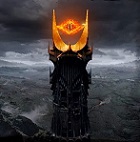mrchuck
Posts: 165
Joined: 8/4/2011
Status: offline

|
I've been playing this game pretty much since it came out, though I've never played against another human. I was seriously considering doing so in the last couple of weeks, but everything I read even since 1.08 is deeply discouraging. It seems that the game is still being gamed lustily, and that if you have time and patience to crunch all the numbers you can pretty much sew it up without thinking too hard. Sorry, I do that all day at work, not going to do it for fun as well.
I would have to say Pelton seems to be a prime example but everyone involved in P2P has to be like this or you don't succeed. And I don't really blame anyone for doing what is rational under the game system provided. But the system--and I think, primarily the morale system--is deeply flawed. What is being modelled is fair enough, whether you call it proficiency or morale or doctrine ir whatever. The way it's being done is all wrong.
Let us assume there is no controversy at all that German morale (proficiency/whatever) started high relative to Soviet, and the latter increased as the former stayed static or declined. Thus during Operation Bagration in 44 the Russians pretty much repaid Germany in the same coin as Barbarossa three years before, and there is plenty of other proof. By the same taken, some German units could still deal nastyish if small-scale surprises to the Russians even near the bitter end. But what factors contributed to this?
In the game, the steady march of national morale in whichever direction, by fixed tables, plus 'farming' and other gambits.
In reality, something quite different--perhaps a combination of casualties (loss of experienced personnel), success or failure on the battlefield, territory won or lost and cities defended or taken, as well as the things that are being included like commanders and win/loss.
I have always been mystified by the lack of morale effects due to major cities and territory changing hands. Whether or not you believe the loss of Leningrad or Moscow or both would have led to the collapse of the USSR, it is hard to imagine that it wouldn't have been noticed by the world at large, the home front, and the troops in the field. Even a couple of morale points would be reasonable as well as the VPs for these objectives changing hands. This would give players more compelling reasons to attack or defend them. At the moment one hex is more or less the same as any other--if the VPs it represents don't cost you the game, it don't matter much.
Therefore...
Suggestion #1: the players be required to allocate morale points, say 5, DURING GAME SETUP, in secret, to some major objectives, with time limits, and again every year. This could be automatic for the Germans in 1941 (or not, could be a setup option)--Leningrad 1, Moscow 2, Kiev 2, by the end of November. For the Russians, the AI or player can decide and some limitations would need to be placed e.g. cities reasonably within reach--not the ones on the east mapedge! So the Russian player would have to make up his (her? any women here?) mind to defend something under feasible threat as desperately as possible.
If the player does not make the annual objectives, those points come off the National Morale. If the player holds/takes them, National Morale goes up. So for taking Kiev but not Moscow or Leningrad, German morale drops a net of one. Assuming the same allocation by the Russians, their morale goes up one. With another allocation, different result. Perhaps less points for holding something you already have, than taking something you don't.
For 1942, the Germans allocate 5 to Stalingrad, and so does Uncle Joe in hopes of a big win and a prosperous '43...you see what I'm getting at. Also, potentially every game would be different depending on what strategy the players decide on, and are obliged to commit themselves to. If you bet wrong what the other side are aiming at...bad juju!
This would require players to deduce what the oponent is up to, not just what the game engine will reward. And while morale remains just one factor in determining victory, success or failure in meeting objectives set becomes relevant. It has the advantage that the players themselves decide what is important and what isn't.
Suggestion #2: tie national morale to casualties somehow. As against the morale boost above, the Russians also had to contend with the appalling casualties sustained in 1941. So while overall their morale improves, at the unit level, not much change perhaps, and many good commanders were killed or captured as well. In addition to the above net effects, German efficiency is mostly unimpaired in the Panzer units, but less in infantry units bled and frostbitten over winter. At the moment I believe it's only win/loss (I could be wrong) and this isn't enough. It's not about the passage of time, but about the effusion of blood.
This would perhaps have the effect of restraining the more ruthless Russian commanders, and make the Germans more mindful that the more men are lost, the harder they are to replace. By 1943, not only was manpower short, it was declining in quality for the Germans. But this didn't happen by magic--it was the loss of around 1.5m casualties up to that point. It would oblige the players to attempt to inflict large casualties on the enemy--e.g. by cutting off the Kursk salient and all the troops within. It also makes reckless attack or defence have other costs. More factors to weigh...less game engine to exploit.
Suggestion #3: tie national morale to territory won and lost--much more so for the Germans than the Russians, for whom 'space-for-time' is a tradition. Even so, by 1942 there wasn't much useful space left. This would tend to simulate the Hitler factor--sure, Manstein can give up the Donbas for operational reasons, but such movements are not 'free' and Hitler knew this. This should not be a massive factor either way, but it should be modelled. I would not for an instant advocate any kind of stand-fast rule, but the perfectly rational reasons for tending towards such a policy are being blithely ignored.
Suggestion #4: reduce Axis Ally morale more by how far East they go. To paraphrase Alan Clark, Rumanian troops fought well enough when kicking the Russians out of Besserabia, but didn't see what business they had on the middle Don.
This nonsense of 'morale farming' the Axis Allies must end. Also I would reduce the Finns more once they're outside the territory they sought to reoccupy, though they should remain fairly effective. But taking over half of AGN's front? Perhaps not...at the moment, this is probably an unrealistically good incentive for the Germans to try Leningrad.
Suggestion #5: Change routing, zones of control, surrender etc. I was very surprised to see routing units in V1.0 and still am. Surely this is an artifact of a Napoleonic or Civil War simulation? I've read and re-read the justifications for this and I still don't buy it, especially when the 'shatter' combat result is still there (all the way from War in Russia??) and seems to me to do all that is required. Either a unit is smashed down to a cadre and has to be reformed, or it isn't. I find the spectacle of displacing, routed units extremely irritating and frankly I don't see the point.
Furthermore all you have to do to turn a rout into a surrender at least in the early game is cut the supply line. And you can do it with units three hexes apart or a simulated operational density of one division every thirty miles. I'm pretty sure that this isn't enough to guarantee no one will slip through. It works out to one man every four metres or so, assuming all are combatants and one single line, neither of which would be the case.
So #5 is in three parts:
1. Measure ZOC strength in a hex, not just its existence. The more units, and the more mot/arm units in particular, the stronger the ZOC. There would still be incentive for double or triple encircelements--more ZOC strength. But it would certainly make the Lvov manouevre less attractive.
2. Remove rout and vary the amount of manpower going back to the pool based on the ZOC strength between the shattered unit and supply.
3. Alternatively, replace rout with 'Retreat/Dislocate'. The R/D'd unit retreats as normal but has a nominal combat value in that hex (until the next player turn, if it survives). Nevertheless the attacker is still obliged to expend movement points on a hasty attack, which will succeed, to make it move again. The R/D unit takes more casualties but there is delay. It may shatter, R/D again, or perhaps even rally, but not rout, please. That has no place in a WW2 game unless you're in the Western Desert fighting Italians. And even then. I have my doubts, since they were more likely to simply give up.
There are some other things that have annoyed me from the start as well:
RR units--remove the need to deselect units they're moving through. This is just plain annoying.
Garrison requirements: need a tool tip suggesting the strength of garrison required. Trying to figure it out by moving various regiments, divisions, security units etc. etc until you come up with the right amount is also just plain annoying. I have staff for that...don't I? I don't know what the relative populations of the Russian cities were in 1941, and frankly I don't care. Furthermore, it should be affected by morale so that just chucking axis allies at the problem isn't the magic bullet it is now. They were crap at controlling partisans as well, for the most part.
Air ranges: being able to show fighter, bomber and util (trans/recon) ranges from an airbase might be real handy. Again, staffs on the ground would have had this stuff at their fingertips. Count hexes? No thanks.
I realise full well that much the above would require changes to the engine and most likely won't happen. However, it's got to the point where I feel that Wite has lost its way and I really don't want to face a human playing it since I just don't have time to fully wreck, er, understand the game, and the sometimes incomprehensible design decisions it contains.
MrChuck
|
 Printable Version
Printable Version







 )
)



 New Messages
New Messages No New Messages
No New Messages Hot Topic w/ New Messages
Hot Topic w/ New Messages Hot Topic w/o New Messages
Hot Topic w/o New Messages Locked w/ New Messages
Locked w/ New Messages Locked w/o New Messages
Locked w/o New Messages Post New Thread
Post New Thread